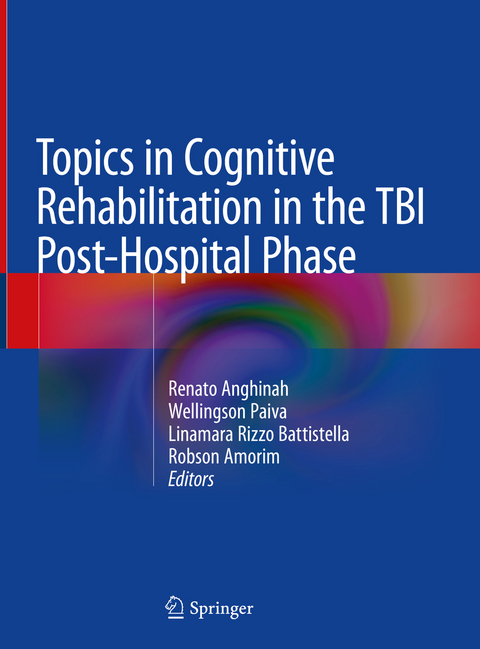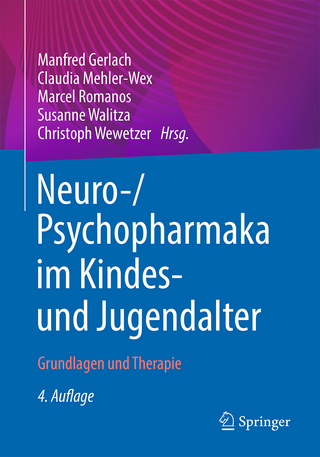
Topics in Cognitive Rehabilitation in the TBI Post-Hospital Phase
Springer International Publishing (Verlag)
978-3-319-95374-8 (ISBN)
The purpose of this book is to review the basic concepts related to TBI, including mechanisms of injury, acute and post-acute care, severity levels, the most common findings in mild, moderate and severe TBI survivors, and the most frequent cognitive and motor impairments following TBI, as well as to discuss the strategies used to support post-TBI patients. The most important rehabilitation techniques, both from cognitive and motor perspectives, are addressed. Finally, information regarding work and community re-entry and familial and psychological support are discussed in detail.
Topics in Cognitive Rehabilitation in the TBI Post-Hospital Phase is intended as a reference guide for all professionals who have contact with or are related to patients suffering from TBI. Any professionals who work with or are related to patients suffering from TBI will find here a broad and comprehensive overview of TBI, addressing all essential issues, from acute care to rehabilitation strategies, follow up and re-socialization.
Renato Anghinah: MD, PhD. Training in Neurology (1990-1992) and in EEG (1992-1993), Federal University of São Paulo, Brazil. (1994). Specialist in Clinical Neurophysiology and Neurology by the Brazilian Academy of Neurology. Master in Medicine (Neurology) by Medical Assistance to the State Civil Servants Hospital, Brazil (1999). PhD in Sciences (Neurology) by University of São Paulo Medical School, Brazil (2003). Associate Professor of Neurology, Head of Cognitive Rehabilitation Post-TBI group and Cognitive Rehabilitation Post-Brain Injury Service, University of São Paulo Medical School, Brazil. Wellingson Paiva: Training in Neurosurgery at University of São Paulo, Brazil (2004-2009). Fellowship in Functional Neurosurgery at University of São Paulo, Brazil (2009-2010). Specialist by the Brazilian Society of Neurosurgery. PhD in Sciences (Neurology) by University of São Paulo Medical School, Brazil (2012). Associate Professor of Neurology, Director of Translational Neurotrauma Laboratory and Supervisor of Emergency Neurosurgery Unit, University of São Paulo Medical School, Brazil. Linamara Rizzo Battistella: PhD in Medicine by University of São Paulo Medical School, Brazil (1990). Specialist in Physical Medicine and Rehabilitation. Former president of the International Society of Physical and Rehabilitation Medicine (2004-2006) and of the Brazilian Physical Medicine and Rehabilitation Association (2005-2007). Chairman of the Institute Lucy Montoro Rehabilitation Center. Coordinator of the WHO development group of rehabilitation guidelines related to health. Robson Amorin: Neurosurgery Residency at University of São Paulo, Brazil (2004-2009). Coordinator of the Neurotrauma Clinic of University of São Paulo Medical School, Brazil. Specialization in Clinical Research by Harvard University (2011). Fellowship in Functional Neurosurgery at University of São Paulo, Brazil (2009-2010). Specialist in Neurosurgery, member of the Brain Trauma Department of Brazilian Society of Neurosurgery (2012-present). PhD in Sciences (Neurology) by University of São Paulo Medical School, Brazil (2013). Supervisor of Emergency Neurosurgery Unit at University of São Paulo Medical School, Brazil (2009-2013).
Spontaneous Recovery Mechanisms-Brain Reorganization.- Respiratory Rehabilitation.- Posttraumatic hydrocephalus: Relevance, Mechanisms, Treatment and Outcome.- Challenges and Complications of Immobility.- Motor Rehabilitation Program and Robotics.- Extra-piramidal Syndromes After Traumatic Brain Injury.- Post-Traumatic Epilepsy.- Traumatic Brain Injury and Electroencephalogram Findings.- Mild Traumatic Brain Injury and Post-Concussion Syndrome.- Traumatic Brain Injury in the National Football League.- Traumatic Brain Injury in Fighting Sports.- Neuropsychiatric Symptoms of Post-Concussion Syndrome (PCS) and Chronic Traumatic Encephalopathy (CTE).- Functional Neuroimage.- Neuropsychological Rehabilitation after Traumatic Brain Injury.- "Come Back to Community and Work after Traumatic Brain Injury".
| Erscheinungsdatum | 03.10.2018 |
|---|---|
| Zusatzinfo | XI, 128 p. 23 illus., 15 illus. in color. |
| Verlagsort | Cham |
| Sprache | englisch |
| Maße | 210 x 279 mm |
| Gewicht | 586 g |
| Themenwelt | Medizin / Pharmazie ► Medizinische Fachgebiete ► Neurologie |
| Schlagworte | Cognitive impairment • Motor impairment • Motor impariment • Physiatry • Physical Medicine • Rehabilitation • rehabilitation psychology • Rehablitation • traumatic brain injury |
| ISBN-10 | 3-319-95374-5 / 3319953745 |
| ISBN-13 | 978-3-319-95374-8 / 9783319953748 |
| Zustand | Neuware |
| Haben Sie eine Frage zum Produkt? |
aus dem Bereich


